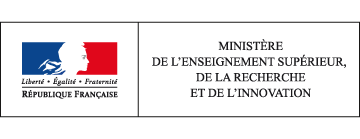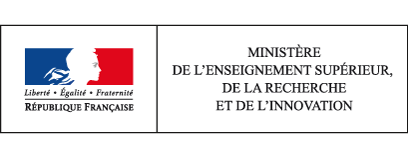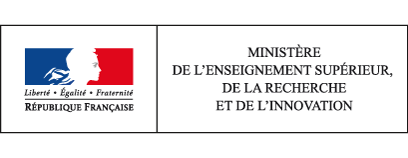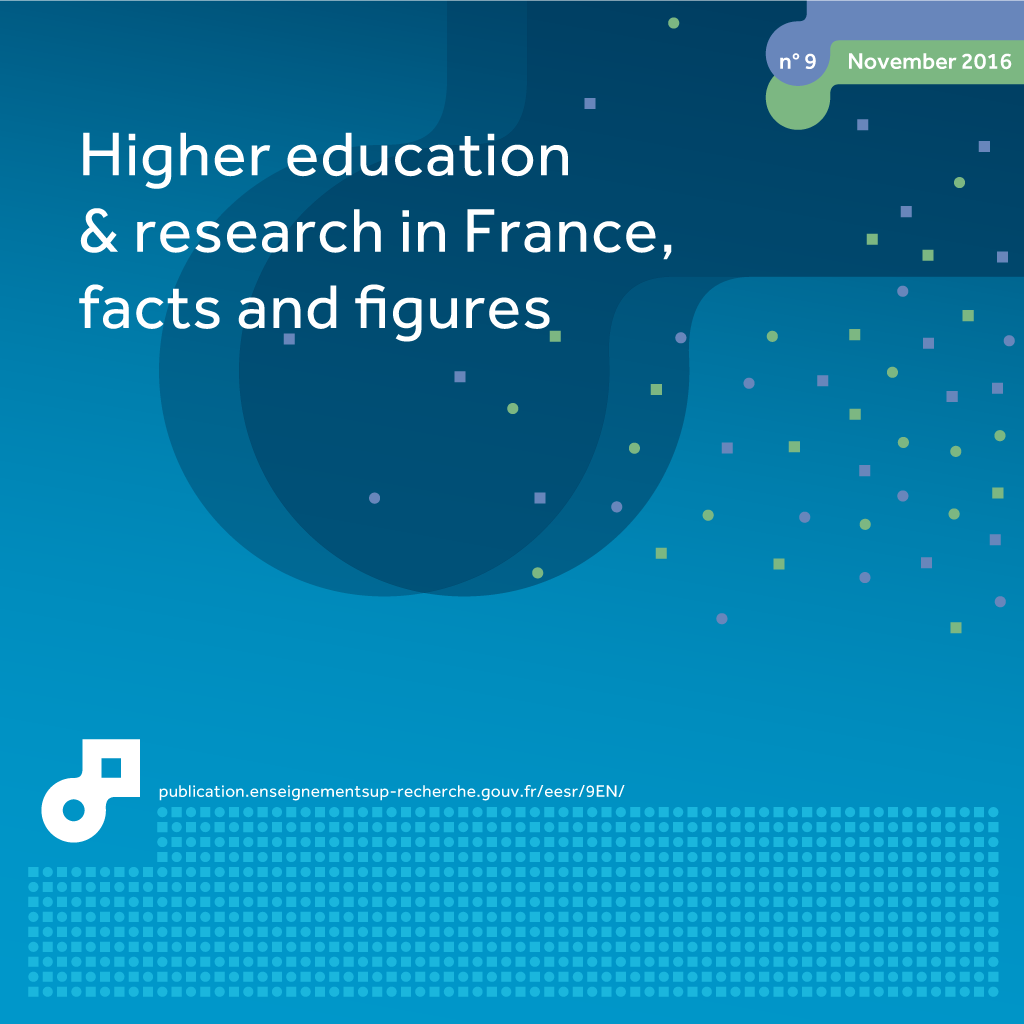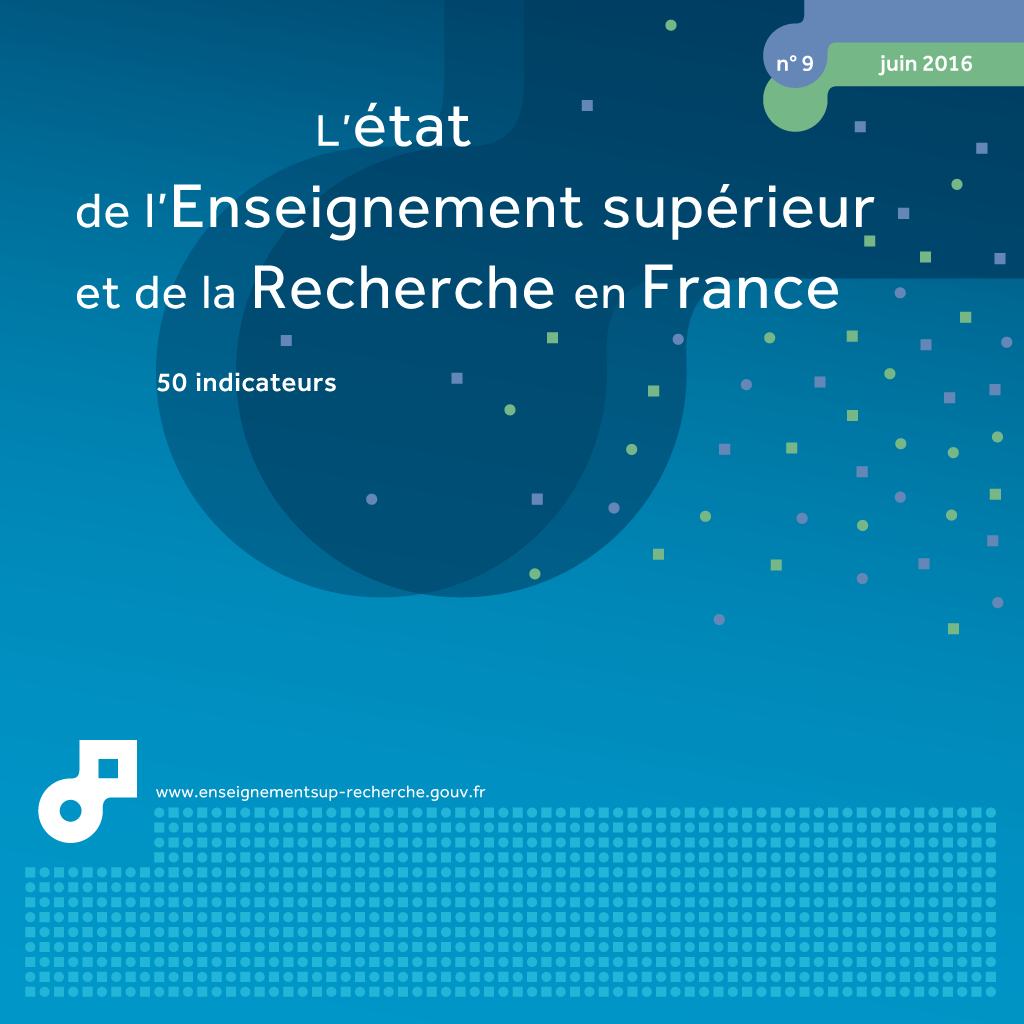30 R&D expenditure by France's main public research institutions
This page has been updated. Read 29. R&D expenditure by France's main public research institutions in Higher education & research in France, facts and figures 10th edition - June 2017
In 2013, the gross domestic expenditure on R&D (GERD) of France's main public research institutions amounted to €9.2 billion, up by 0.9% in relation to 2012. These institutions carry out 55% of public research and are key stakeholders in research and development in France. The French National Centre for Scientific Research (CNRS) and the civil division of the French Alternative Energies and Atomic Energy Commission (CEA) conduct a third of public research, with GERD of €5.6 billion.
Eight State-owned scientific and technological establishments (EPST) and a dozen State-owned industrial and commercial establishments (EPIC) make up France's main research institutions. They are supervised by one or more government ministries and have a public service remit. Their primary objective is to carry out research, particularly in fields or to achieve aims agreed in long-term target and performance contracts signed with the French government. They conduct more than half of public research and nearly a fifth of all research carried out within France (by both government bodies and enterprises) and as such are key stakeholders in the country's research and development sector. In 2013, these key public institutions invested €9.2 billion in GERD, equivalent to 55% of public research, with EPSTs accounting for 32% and EPICs 23% (table 30.01). Their R&D expenditure increased by 0.9% in relation to 2012.
The CNRS and the CEA are France's two largest research institutions. In 2013, they were responsible for 33% of all public research between them (19% for the CNRS and 14% for the civil division of the CEA). France's other research institutions are smaller in size: the French National Institute for Agricultural Research (INRA) and the French National Institute of Health and Medical Research (INSERM) each account for 5% of public research, while the French Government Space Agency (CNES) is responsible for 3%. The remaining public research institutions each account for 2% or less of research in France. Some institutions focus primarily on fundamental research (chart 30.02). In 2013, this kind of research accounted for 89% of CNRS R&D expenditure and all R&D spending by the French Institute for Demographic Studies (INED) and the French Polar Institute (IPEV). Other institutions are more focused on applied research, such as the civil division of the CEA (79% of its GERD), the French Government Geological Survey (BRGM), the Scientific and Technical Centre for Building Trades (CSTB) and the National Competence Centre for Industrial Safety and Environmental Protection (INERIS).
Public institutions do not always fund all of their research work using domestic expenditure, but also use external expenditure (DERD); they sometimes enter into partnerships or subcontracting arrangements with external organisations, such as enterprises, foreign governments, international organisations and foreign teams. In 2013, their R&D extramural expenditure was €0.7 billion, a share that still represents less than 7% of their external research work (chart 30.03).
Although the BRGM, the civil division of the CEA, the French Research Institute for the Exploitation of the Sea (IFREMER), the National Metrology and Test Laboratory (LNE) and the French National Aerospace Research Centre (ONERA) fund nearly all their work from intramural expenditure, with less than 5% of their research conducted externally, the French Agricultural Research and International Cooperation Organisation (CIRAD), French Government Space Agency (CNES) and the Institute of Research for Development (IRD) sub-contract over 20% of their research work.
Of this extramural expenditure, the proportion of research work carried out in collaboration with foreign governments increased very slightly in comparison with 2013. The ONERA and INSERM primarily entered into research partnerships with public sector bodies (chart 30.04). By contrast, the IFREMER relied on businesses. The French Agricultural Research and International Cooperation Organisation (CIRAD) and the IRD were an exception to the rule by investing 95% of their DERD abroad and with international organisations, due to their international missions and institutions.
How to cite this paper :
close
Key figures
Whole of France
Whole of France
Whole of France
Whole of France
Whole of France
Whole of France
Whole of France
Whole of France
Whole of France
Whole of France
Whole of France
Whole of France
Whole of France
Whole of France
30.01 Amount and breakdown of gross domestic expenditure on R&D (GERD) by French government bodies in 2013 (€bn, %)
You can embed this table to your website or your blog by copying the HTML code and pasting it into the source code of your website / blog:
close
30.02 Breakdown of GERD by France's main public institutions in 2013 by type of research (%, €M) 1
1 Main public institutions in terms of GERD - excluding the CNES, INRA and IRD (breakdown data not available).
You can embed this chart to your website or your blog by copying the HTML code and pasting it into the source code of your website / blog:
close
30.03 Proportion of R&D extramural expenditure (DERD) by France's main public institutions 1, in relation to their total R&D expenditure in 2013 (%) 2
1 Main public institutions in terms of GERD.
2 Intramural expenditure on R&D (GERD) + Extramural expenditure on R&D (DERD).
You can embed this chart to your website or your blog by copying the HTML code and pasting it into the source code of your website / blog:
close
30.04 Breakdown of R&D extramural expenditure (DERD) by France's main public institutions in 2013 by institutional sector (%) 1
1 Main public institutions in terms of GERD, excluding the CEA (data not available).
You can embed this chart to your website or your blog by copying the HTML code and pasting it into the source code of your website / blog:
close
Translation
 Etat de l'enseignement supérieur et de la rechercheL'état de l'Enseignement supérieur et de la Recherche en France n°9 - Juin 2016
Etat de l'enseignement supérieur et de la rechercheL'état de l'Enseignement supérieur et de la Recherche en France n°9 - Juin 201630 - les dépenses de recherche des organismes publics - Christophe Dixte
